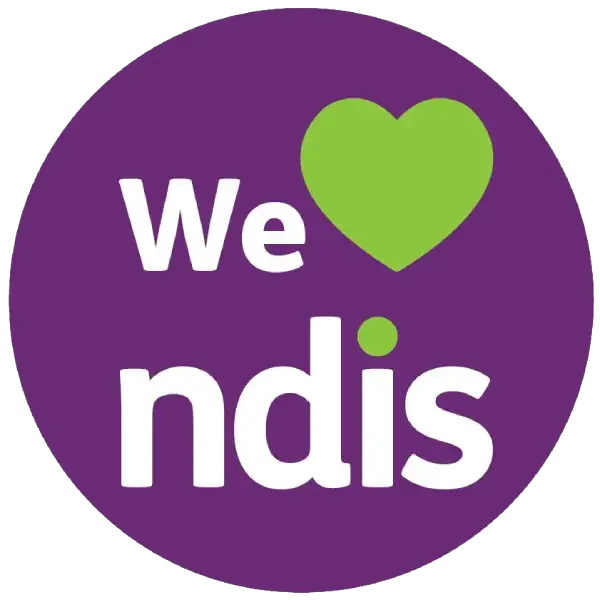Enquire about our SIL vacancies
The National Disability Insurance Scheme (NDIS) is a transformative program designed to provide support for individuals with disabilities across Australia. The NDIS aims to ensure that people with disabilities can live more independent, fulfilling lives by offering tailored services and funding for essential support. One of the key questions people often have about the NDIS is what types of disabilities it covers. Understanding the scope of NDIS coverage is vital for those seeking to access services and supports.
In this blog, we’ll explore the types of disabilities the NDIS covers, how it works, and what you need to know when applying for assistance.
Understanding the NDIS
Before diving into the specifics of which disabilities are covered by the NDIS, it’s important to understand the scheme itself. The NDIS provides funding for people with disabilities who require support to live their lives, participate in the community, and achieve their goals. This includes a wide range of services, from personal care to home modifications and assistive technology. The NDIS is available to people under the age of 65 who meet certain eligibility criteria, such as having a permanent and significant disability that affects their ability to perform everyday tasks.The NDIS Disability Criteria
To access NDIS funding, applicants must meet the following criteria:- Age: The individual must be under the age of 65 at the time of their application.
- Residency: The individual must be an Australian citizen, permanent resident, or hold a Protected Special Category Visa.
- Disability: The individual must have a permanent and significant disability that affects their ability to perform daily activities and requires support.
Types of Disabilities Covered by the NDIS
The NDIS provides support for a wide variety of disabilities. Broadly speaking, it covers disabilities that:- Significantly impact the ability to perform everyday activities.
- Are permanent or likely to be permanent.
- Require ongoing assistance or support.
1. Physical Disabilities
Physical disabilities are among the most common types of disabilities that the NDIS supports. These disabilities can result from birth conditions, injuries, or degenerative conditions. Examples include:- Mobility Impairments: Conditions such as cerebral palsy, spinal cord injuries, or multiple sclerosis (MS) can result in mobility challenges. The NDIS provides support for mobility aids like wheelchairs, prosthetics, or home modifications to improve access.
- Neurological Conditions: Neurological disorders such as Parkinson’s disease, brain injuries, or strokes can result in physical impairments that require assistance with movement or daily tasks.
- Amputations: People who have lost limbs, whether due to trauma or medical conditions, may receive funding for prosthetic limbs or mobility equipment to help them navigate their environment.
2. Intellectual Disabilities
Intellectual disabilities refer to limitations in intellectual functioning and adaptive behavior. These disabilities can affect learning, decision-making, and the ability to perform tasks independently. The NDIS supports individuals with intellectual disabilities such as:- Down Syndrome: People with Down syndrome may require assistance with communication, personal care, and managing everyday tasks.
- Autism Spectrum Disorder (ASD): While ASD is considered a neurodevelopmental disorder, it often includes intellectual disabilities, particularly for those with significant impairments in cognitive and adaptive functioning. The NDIS offers support for behavioral therapy, communication aids, and other services to assist people on the autism spectrum.
- Global Developmental Delay: This is a condition where a child shows delays in multiple developmental areas. The NDIS can assist with early intervention therapies and ongoing support.
3. Sensory Disabilities
Sensory disabilities affect the senses, such as sight, hearing, and touch. The NDIS provides essential services for individuals with sensory impairments, including:- Vision Impairments: People with significant vision loss or blindness may receive funding for adaptive devices, mobility aids, training, and other services to enhance independence.
- Hearing Impairments: Individuals with hearing loss, including those who are deaf, may access services like hearing aids, sign language interpreters, and communication support to improve their social inclusion and participation.
- Dual Sensory Impairments: Some individuals have both hearing and vision impairments. These individuals receive tailored support to address their unique needs.
4. Mental Health Disabilities
Mental health conditions can also qualify for support under the NDIS, provided they are permanent or likely to be permanent and significantly impact the individual’s daily life. These disabilities can include:- Schizophrenia: This condition can cause individuals to experience severe changes in thought, perception, and behavior, requiring substantial support.
- Bipolar Disorder: Individuals with bipolar disorder may experience extreme mood swings, affecting their ability to perform day-to-day tasks and maintain stable employment.
- Depression and Anxiety: Severe depression or anxiety that impacts a person’s ability to engage in daily life and requires ongoing treatment may be covered by the NDIS. The level of support needed will vary depending on the severity of the condition.
5. Autism Spectrum Disorder (ASD)
Autism Spectrum Disorder (ASD) is a developmental disorder that affects social communication, behavior, and sensory processing. The NDIS provides a wide range of disability support services for individuals with ASD, such as:- Early Intervention: Therapy and interventions designed to help children with ASD develop communication and social skills.
- Behavioral Therapy: Programs that help individuals manage behaviors and improve daily living skills.
- Support for Families: The NDIS also provides support to families and caregivers of individuals with ASD, including respite care and behavioral support training.
6. Acquired Brain Injuries (ABI)
An acquired brain injury (ABI) can result from trauma (such as a car accident) or medical conditions (like stroke or a brain tumor). Individuals with ABI often experience cognitive, physical, and emotional challenges. The NDIS offers support services such as:- Rehabilitation Therapy: Support to help people regain function and independence.
- Psychological Support: Assistance to manage emotional and psychological challenges post-injury.
- Assistive Technology: Devices to assist with memory, mobility, and communication.
7. Chronic Illness and Degenerative Diseases
Chronic illnesses and degenerative conditions that cause long-term physical limitations are also covered by the NDIS. Examples include:- Multiple Sclerosis (MS): This condition causes progressive damage to the nervous system, requiring ongoing support.
- Motor Neuron Disease (MND): As MND leads to the progressive loss of motor functions, the NDIS helps individuals with mobility aids, communication devices, and personal care assistance.
- Arthritis: In severe cases, arthritis can cause chronic pain and mobility issues that may require NDIS support.
8. Other Disabilities
In addition to the disabilities listed above, the NDIS also provides support for other conditions that significantly impair daily functioning. These may include:- Spinal Cord Injuries
- Post-Traumatic Stress Disorder (PTSD)
- Cystic Fibrosis
- Rare and Undiagnosed Disabilities
How to Apply for NDIS Funding?
To access the NDIS, individuals must submit an application, which involves:- Checking Eligibility: Ensure that you meet the age, residency, and disability criteria.
- Preparing Documentation: Provide medical records, assessments, and any supporting documents that describe the disability’s impact on daily life.
- Submitting an Access Request: This can be done through the NDIS website or by contacting the NDIS directly.
- Planning Meeting: If eligible, a planning meeting is scheduled to discuss the person’s goals and required support. A plan is then created, detailing the funding and services needed.
Conclusion
The NDIS covers a broad spectrum of disabilities, ranging from physical and intellectual disabilities to mental health conditions and degenerative diseases. If you or a loved one is living with a disability that significantly impacts daily life, it’s important to explore whether the NDIS can provide the support you need. By offering personalised services and funding, the NDIS helps individuals with disabilities live more independently and fully participate in their communities. At Ambition Health Group, we understand that navigating the NDIS can be a complex process, but we are here to help. Whether you’re looking to learn more about NDIS eligibility or need expert assistance in accessing the right services, our team is dedicated to ensuring that you get the support you deserve. Don’t hesitate to reach out to us for guidance and support in making the most of the NDIS.Recent Posts
Top Rated Services
Get A Quick Quote Now
Enquire about our SDA vacancies
Enquiry Now
Consult Our Care Experts
Grab Your Free Consultation Today!
Or give us a call to speak to someone now
1300 668 655









